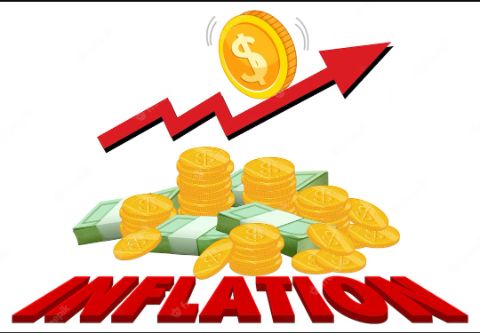A significant international conflict broke out just as the economy started to stabilize and supply chain problems started to fade. Some of the biggest inflation rates in history were brought on by the perfect storm of cost-push inflation and demand-pull inflation.
Here are two major explanations for why inflation is so high, keeping that basic information in mind.
1. The pandemic of Covid-19
A classic incidence of demand-pull inflation was brought on by the pandemic. Demand-pull inflation can be brought on by several things, but in this case, household spending plays a major role.
Demand-pull inflation frequently happened following wars throughout history. For instance, the nation’s economy enjoyed a boom following the end of World War II, which was unexpected.
People started to spend more money than they had in prior years because they were enjoying the end of the war and living more carefreely. Due to the sudden increase in demand over supply, the economy quickly changed.
When lockdowns were lifted and individuals felt more at ease returning to their regular lives as the pandemic started to fade, a similar situation happened.
People started making purchases again, but they happened too quickly for the lethargic supply chain to keep up. Furthermore, shortages and price hikes happen when demand exceeds supply by that amount.
2. The invasion of Ukraine by Russia
Putting politics aside, domestic and international violence has an impact on how the global economy operates. Due to the war’s interruption of the supply chain, which Russia and Ukraine provide the globe with important commodities, sanctions were put in place, and increased prices became unavoidable.
Due to the conflict between these two nations, huge shifts and shortages are occurring globally. The world is seeing the worst effects in four main areas:
a. Transport: Palladium, platinum, titanium, and fertilizer are just a few of the top exports from Russia to the rest of the world. Important businesses including agriculture, transportation, and transportation equipment depend on these commodities.
b. Energy: Russia contributes significantly to the global oil and energy industries. Energy costs have grown by 30% overall, with the price of Brent oil surging to $120 per barrel in June. 7.6% of The CPI is attributed to energy use in the United States, which contributes to rising prices and a worldwide energy problem.
c. Financial Markets: Global stock prices typically suffer negative consequences as a result of hesitant trades and divestments when equities are erratic, such as during a conflict.
d. Food: One-fourth of the world’s wheat, one-fifth of its corn, its coarse grains, and 80% of its sunflower oil are produced in Russia and Ukraine. The battle has resulted in a 17% rise in world food prices.
Is a decrease in inflation imminent?
Everyone speculates. A significant economic disturbance, such as a pandemic or a war, is predicted to lead to inflation, according to past tendencies.
Even while we have the experience to draw from, the economy has shown to be fairly unpredictable. Globally, economists are still compiling data and examining patterns to produce the most precise projections. The following are a few of the forecasts:
i. The Federal Reserve (Fed), the country’s central bank, predicts that inflation would reach a peak in 2022, start to drop in 2023, and not reach its objective of 2% until 2025.
ii. Morgan Stanley: The final quarter of 2022 will see a high in inflation.
Goldman Sachs predicts that by 2023, core PCR inflation will have decreased to 3% from 5%.
iii. According to projections by the World Economic Forum, inflation will decrease from 8.8% in 2022 to 6.5% in 2023 and 4.1% in 2024.
How does inflation affect you personally?
Inflation can result from several circumstances, including the ones the world is currently experiencing: the aftermath of a pandemic followed by a foreign conflict. Although many economists believe that deflation is imminent, there is never a 100% guarantee.
Budget sensibly, set up an emergency fund, make prudent investments, and keep a careful watch on the interest rates on any debt you may have if you want to safeguard yourself against inflation.
Visit EntrepreneurNg.com if you want to learn more about the economy, unemployment rates, or investment.











